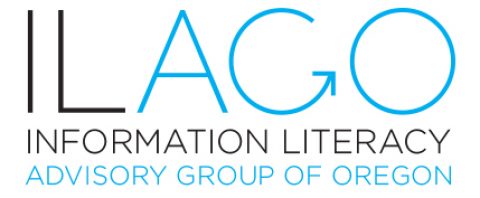(compiled by Uta Hussong-Christian)
The impetus for investigating ILAGO’s fiscal options is the current situation where the organization’s finances are handled by the Oregon Library Association. The funds generated by the annual Oregon Information Literacy Summit are posted to the fund line “Info Lit Summit” (correct?) under ACRL-OR (or is it LIRT?). ILAGO has no direct control over the funds and, in fact, and must run vendor payment requests through the LIRT chair. ILAGO is charged a 6% fee on all credit card transactions (this can flucuate depending on the bank fees that OLA sees being charged by the various credit card providers), but there is no fee levied for invoice payments.
I investigated the following options for managing ILAGO finances:
- through OUS-level foundation (had previous experience with this at another state university system)
- through the Alliance
- following the Code4Lib conference model (Code4Lib is independent of any institution and is not “formally” organized as a non profit)
- through OSU Conference Services (quote is pending)
1. OUS-level foundation
According to Jackie Thorsness (Dir of Budget & Business Svcs) at the OUS Comptroller’s Office, the individual OUS institutions have their own foundations and there is no mechanism available at the OUS level to handle funds from loosely-affiliated organizations like ILAGO. Jackie stated that if an OUS official were affiliated with our organization then they might be able to help us. But since they have no direct control or involvement with ILAGO, managing ILAGO finances through OUS is not possible.
2. Alliance
I contacted Laura Zeigen at OHSU who had experience setting up the Alliance Research Interest Group ARIG) through the Alliance. The Alliance is able to provide webpage and listserv support only; they can provide no support for organization finances.
3. Code4Lib Conference Model
Each institution that hosts Code4Lib handles the finances for that year; it is part of their commitment to figure out how to make that happen with their institution. At the conclusion of the event, any balance of funds is sent in check form to the next hosting institution. I talked with OSU’s Business Affairs folks (they handle OSU Libraries’ accounting matters) who indicated that Code4Lib is unique in that they are able to assign the incoming funds to a index code that is associated with one of our staff member’s endowment funds (the staff member is also one of the founding members of the Code4Lib conference and is active with the event every year).
Typically OSU can’t mingle state funds and other types of funds but this situation is unique because of the endowment. Because there is no endowment-type of fund (I, for instance, don’t have an endowed postion) that could be used for incoming ILAGO funds, this type of arrangement will not work.
4. OSU Conference Services
OSU has a fully operational Conference Planning Center which offers a variety of services including conference registration and “bill pay” for conference expenses among other things. We could keep funds with OSU Conference Services from year to year. The only requirement for continuing a relationship with OSU Conference Services is that someone on the ILAGO board has to have an OUS connection (yes I do mean Oregon University System, which should be no problem). So this frees us from having to have an OSU person always on the board.
The downside to this potential arrangement is the fees that OSU Conference Services charges. The basic work to set up registration websites and do bill pay is either done on an hourly fee or “per registrant” fee (for ~80 attendees, I was told they would just do the hourly rate). Additionally there is a 3% fee assessed for process each incoming payment and a 3% fee assessed for process each outgoing expense payment. OSU Conference Services is putting together a quote for me, but right now the fee arrangement seems quite excessive. Update (2/24/2012): OSU Conference Services quote .
Recommendation
Based on the options investigated, it appears that continuing our present arrangement with OLA is the least costly (and does not require us to formally organize which we need to do if we seek any kind of arrangement where we have a bank account).
